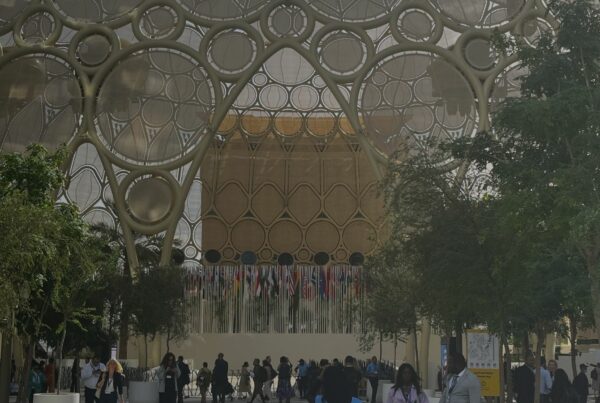What is the CBD COP15?
The Convention on Biological Diversity (CBD) 15th Conference of Parties (COP15) was first due to take place in 2020 but has been delayed multiple times. As a result of the global pandemic, it was split into two parts.
- Part 1: This took place virtually from 11-15 October, 2021. It was a “high-level meeting” formally opening the COP, during which China assumed the Presidency. The meeting was largely ceremonial, with a high-level segment and statements from several heads of states, resulting in the Kunming Declaration.
- Part 2: Due to domestic Covid-19 policy, the COP15 Chinese Presidency is unable to host an in-person meeting in December 2022. Canada will be hosting the second part in Montreal. This will include preparatory negotiations (called Open-Ended Working Groups – OEWG) from 3-5 December and the actual conference to agree a Post-2020 Global Biodiversity Framework from 7-19 December – the high-level segment will take place between 15-17 December. There are also unconfirmed reports of a virtual leaders summit around COP15.
In preparation for these decisions, a series of negotiations happened virtually through 2021, mmand in Geneva and Nairobi 2022. The CBD is one of the conventions born out of the 1992 UN Earth Summit in Rio (along with the UNFCCC).
The CBD has 3 main objectives:
- The conservation of biological diversity (biodiversity)
- The sustainable use of biodiversity’s components
- The fair and equitable sharing of the benefits arising from genetic resources, generally known as Access to Benefits and Sharing (ABS – see below and annex for details)
- The CBD has 195 parties. The Holy See is not a signatory, while the US has signed but not ratified the convention. The US usually sends a non-party delegation to the negotiations.
- China, as the host of the CBD COP15, has agreed on the theme “Ecological Civilisation: building a shared future for all life on earth”.
What will be negotiated at CBD COP15?
CBD COP15 aims to adopt a Post-2020 Global Biodiversity Framework to halt and reverse biodiversity loss globally – a stepping stone to the 2050 goal of “Living in Harmony with Nature”. While the negotiated outcome won’t fully determine the “success” of COP15 (i.e. non-state actors like companies, investors, philanthropy and local authorities will also make pledges), there are several key components that will contribute to a successful outcome.
-
- Goals and targets: New, measurable biodiversity targets to halt biodiversity loss and even reverse biodiversity decline.
- Money: Committed resources and financing to implement the agreed targets.
- National delivery: Clarity on how countries will update and implement biodiversity plans (National Biodiversity Strategies and Actions Plans – NBSAPs) following the CBD COP15.
- Accountability and transparency: New targets with updated processes for planning, reporting and reviewing progress on them.
Why does nature matter?
- Urgently halt the devastation of nature: Scientists are labelling this era a mass extinction event, the first of its kind caused by humans. Humans have impacted nearly every corner of the planet and we are approaching planetary boundaries from which it could take millions of years to recover. The UN Secretary General has warned “we are losing our suicidal war against nature.” The leading scientific panel (Intergovernmental Science-Policy Platform on Biodiversity and Ecosystem Services – IPBES) has warned millions of species could go extinct unless urgent action is taken.
- Climate action: Protecting and restoring nature can be an important contribution to climate action. Nature can help store and sequester carbon emissions. Without dramatically changing the earth’s existing ecosystems, it’s estimated that nature has the cost-effective potential to remove about 11.3 billion tons of carbon dioxide from the atmosphere per year by 2030 – equivalent to roughly one-third of current annual energy carbon emissions. But, critically, nature acts as a buffer and shield against extreme weather events. Globally, mangroves already reduce flood damage by up to $82 billion USD every year. Restoring forests near the sources of river catchments in 534 of the world’s largest cities would save water companies $890 million USD per year in costs, such as dealing with floods or treating water to improve its quality.
- Economic prosperity: The world’s economy relies on nature. $44 trillion USD of economic generation relies moderately or heavily on nature and would be impacted by its loss. Around the world, 1.2 billion jobs depend on a healthy natural environment, including forests, fishing and farming. Forests provide many ecosystem services to people, the total value of intact forests and their services is up to $150 trillion USD, around double the value of global stock markets. There is growing concern amongst respected economists that the destruction of nature could have profound economic implications and cause bankruptcy.
- Health: Nature is beneficial to our physical and mental health. Biodiversity loss is directly related to the emergence of zoonotic diseases like Covid-19 – scientists suggest that more pandemics are likely unless we protect nature. In addition, protecting nature can improve local air quality and reduce heat exposure. 70% of drugs used for cancer are inspired by nature.
Why is a good CBD COP15 outcome important?
- The CBD COP15 is a seminal moment to create a global post-2020 framework for biodiversity and set plans for the next decade to “bend the curve” and reverse biodiversity loss. It comes after the world collectively failed to meet a single previous CBD-agreed target (known as the Aichi Biodiversity Targets), and at a time when the connection between nature, people and climate has never been clearer.
-
- The outcomes of these negotiations will have a direct impact on national plans, commitments and funding for nature – e.g. they could strengthen and establish protected areas, become integrated into agricultural policy and amend land rights for local communities and Indigenous Peoples.
- The outcomes will also impact short- and long-term climate mitigation plans and adaptation plans – the UNFCCC and countries will need to reflect their promises in their climate plans.
- The CBD COP15 is a moment to force many non-state actors like companies, investors, philanthropies and local authorities to move to present their plans on integrating nature into their business models – e.g. mandatory disclosure commitments.
- The goals set out by the CBD will guide multilateral, national and regional development banks in where to make the most impactful country and sector investments.
- The goals will help provide accountability and clearer targets for the financial sector, reinforcing existing initiatives around company and financial disclosure, such as the Taskforce on Nature-related Financial Disclosures (TNFD).
China & COP15
- The CBD COP15 is China’s first major environmental summit, and first major international summit since the 1995 UN Women conference.
- China has recently made a set of domestic announcements, which will have an impact on its own environmental agenda: creating a climate and environment watchdog in government, embedding environment concerns in its agriculture policy and resources policy, mapping the entire country to protect ecosystems, and ensuring 24% of the country is forested by 2025 as part of its 14th Five-Year Plan (even though the Plan was considered disappointing by many climate activists). These shifts in domestic policy come as China increasingly asserts itself on the global stage with its 2060 carbon neutrality goal – the CBD COP15 is a test for China to see if it can manage a successful high-level environmental summit.
- The first part of the CBD COP15 between 11-15 October, 2021, included the Kunming Declaration, which underlined the importance of acting on biodiversity loss. China created a new fund for biodiversity and committed 1 billion RMB ($232 million USD), inviting others to also donate to the fund.
What are the main campaigns around the CBD COP15?
-
- 30×30 is a target-based campaign with the most political traction. It is a global campaign that aims to protect 30% of the world’s land and oceans by 2030. It is popular with a number of countries that champion top-line goals at the CBD, with 100+ countries signing up.
- Critiques: Depending on the wording of the text, 30×30 is potentially problematic, as conservation efforts could displace Indigenous Peoples or cause land to be improperly managed. In addition, a country like Brazil may easily meet the 30% target already, accounting for Indigenous protected areas and other conservation areas in the Amazon.
- A High Ambition Coalition (HAC), led by Costa Rica and France, has mobilised around greater ambition ahead of the CBD COP15. The UK has led the complementary “Leaders Pledge for Nature”, which also promises to protect 30%.
- As 30×30 is a spatial policy, it is similar to China’s Ecological Redlines policy that will protect upwards of 25% of China’s land for conservation. However, China has not signed the 30×30 pledge.
- The scientific consensus is that 30% is the minimum percentage of the world needed to be protected in order to halt and reverse biodiversity loss at a safe level.
- Nature Positive is a more holistic campaign seeking to ground biodiversity positive policies into future economic planning.
- The campaign advocates a strong “global goal” for nature, analogous to the UNFCCC “net zero” target – the goal should be “nature positive” by 2030, i.e. we should have more biodiversity in 2030 than we do now.
- Its Road to Recovery report details the key features of a nature-positive recovery from the current crises.
- Critiques: it is very difficult to measure biodiversity and establish a “baseline” from which to then increase biodiversity.
- 30×30 is a target-based campaign with the most political traction. It is a global campaign that aims to protect 30% of the world’s land and oceans by 2030. It is popular with a number of countries that champion top-line goals at the CBD, with 100+ countries signing up.
- Finance on the table focuses on the fact a good outcome at the CBD COP15 is impossible without money on the table to support developing countries (often megadiverse countries) to protect their biodiversity.
- Many NGOs are lining up to demand $60 billion USD annually from rich countries to poor countries to support biodiversity.
- This is in addition to addressing the subsidies and other financial flows that are directly harming biodiversity.
Related Articles





